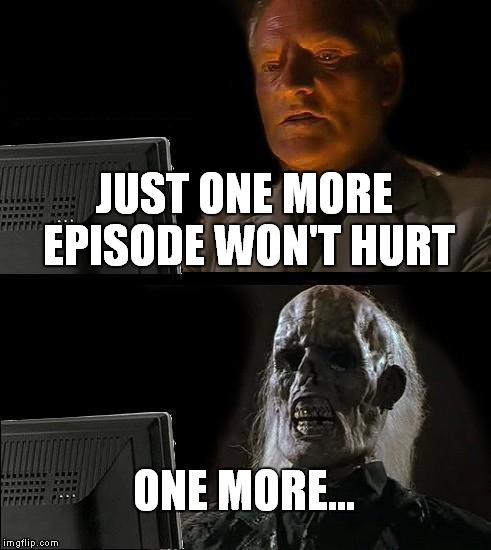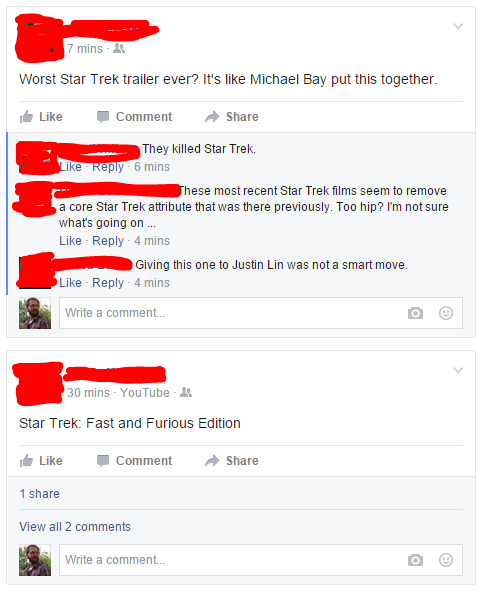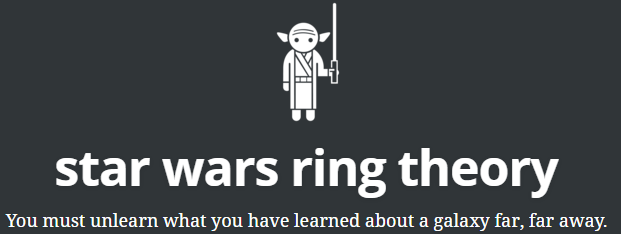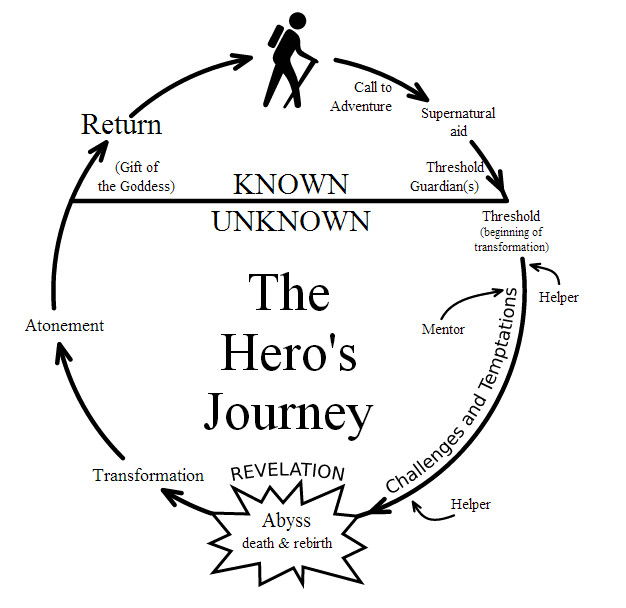In trying to refute David French’s critique of the New Right’s use of the Lord of the Rings, Nathanael Blake (of The Federalist) says a lot more about himself than he intended.
Pop Culture
Taylor Swift — Still Not Feminist Enough
 I’m pretty tired of the constant political onslaught (I mean, still #nevertrump, but remember when we used to talk about other things? no? Homestar Runner? cat memes?), especially from random famous people. But apparently this is blasphemous for anyone who thinks they are feminist, and Taylor Swift is the shining example.
I’m pretty tired of the constant political onslaught (I mean, still #nevertrump, but remember when we used to talk about other things? no? Homestar Runner? cat memes?), especially from random famous people. But apparently this is blasphemous for anyone who thinks they are feminist, and Taylor Swift is the shining example.
The Washington Post has an article laying out the many “feminists” attacking T. Swift, along with some good commentary:
[Y]ou might think, given our current focus on women’s rights and dignity, that “Reputation” would land with a girl-power splash. But you’d be wrong. Very wrong. In fact, Swift is already under fire from feminist critics. And their attacks reveal something very ugly about modern feminism: While today’s feminists claim to champion the rights of all women, they speak only for women who agree with them – vocally, frequently and on demand…
The test of a feminist’s commitment should be how she treats women who are different from her. It shouldn’t matter if Swift agrees or disagrees, if she speaks or remains silent. We should applaud her ability as a person, independent, with her own heart and mind, to be who she wishes.
Taylor has been criticized (often throughout multiple articles) by Bustle, Salon, and The Daily Beast, among others. [ref]Some criticisms include using feminism only when it benefits her, not attending the women’s march, not speaking out against Trump, not vocally supporting Planned Parenthood, etc.[/ref] Buzzfeed seems to be the one of sole holdouts – having articles going back up to four years about her feminism.
I’m not sure what or who these kinds of criticisms are going to help. Nitpicking about being feminist “enough” can only make the movement look unnecessary. So ladies, let’s spend some more time attacking the patriarchy (I don’t usually say that literally, but the time is ripe) and leave our fellow sisters alone, including Ms. T-Swizz.
What I’m Watching

Last year, Difficult Run started “The DR Book Collection” as a way of letting readers know what the DR editors were reading while providing some informative reviews/videos about the books themselves. Aside from the Goodreads-like sharing, the Collection in a sense acts as a window into the intellectual worldviews of the various editors.
But along with serious reading comes a Netflix binge or two. Our “What I’m Watching” section will be the place where DR editors share what new TV obsessions they’ve discovered, what movies moved them like no other, and what series have eaten away many precious hours of their fleeting lives.
Basically, this is where we invite you to join us on the couch in pop-culture nirvana and veg.
May 4, 2017: Erased (2016)
May 10, 2017: Death Note (2006-2007)
May 19, 2017: A Silent Voice (2016)
Sept. 13, 2017: Anime Catch-up
The Melancholy of Haruhi Suzumiya (2006, 2009)
One-Punch Man (2015)
Attack on Titan (2013, 2017)
One Week Friends (2014)
Your Lie in April (2014-2015)
The Devil Is a Part-Timer! (2013)
Fullmetal Alchemist: Brotherhood (2009-2010)
Scum’s Wish (2016-2017)
My Teen Romantic Comedy SNAFU (2013, 2015)
Haikyuu!! (2014-2016)
All Trumped-Out

I’ve been feeling Trumped-out since before the election, and I had hoped post election (perhaps naively even after he won) that the Trump obsession would dwindle to a hum. I’ve been dissapointed to say the least (please, Facebook, bring back memes about cats and tacos, I’ve had enough Trump.) I have, however, managed to come across some articles within the Trumpian madness that are actually worth the read.
First, from the NYT, an Italian confronts the similarities between Trump in America and their own media tycoon, Berlusconi, who was prime minister in Italy for a total of nine years. His suggestion on how to combat Trump: stick to policies, ignore the person (Please, ignore the person!).
Only two men in Italy have won an electoral competition against Mr. Berlusconi: Romano Prodi and the current prime minister, Matteo Renzi (albeit only in a 2014 European election). Both of them treated Mr. Berlusconi as an ordinary opponent. They focused on the issues, not on his character.
From the Cato Institute, a critique of Trump’s inaugural address, that ignores the style of the address and worries about the substance. The author notes that words indicating an adherence to or respect of the Constitution were missing.
Still, I wish the speech had used the word “Constitution,” or “law” in a way beyond the phrase “law enforcement,” or “Framers” or “Founders,” or “Declaration” or “Amendment” or “individual” or perhaps “rights.” The one occurrence of “right” was in a passage about “the right of all nations to put their interests first.”
From Politico, an indictment of journalistic temper tantrums that describes how journalism should behave (hint: let the facts speak for themselves, oh, and shut up about crowds (and tweets)), and recalls similar (though stylistically different) issues brought about by the Obama administration.
As I’ve hypothesized before, there is a method to Trump’s tweets. Whenever he finds the noose of news lowering over his thick orange neck, he takes to Twitter to change the subject. The more outrageous and self-serving (or should I say “self-dealing”?) the tweets are, the better his results…
Consider the Obama presidency. As former Politicos Jim VandeHei and Mike Allen wrote in 2013 in a piece titled, “Obama, the Puppet Master,” he was “a master at limiting, shaping and manipulating media coverage of himself and his White House.” … Obama, VandeHei and Allen explained, took “old tricks for shaping coverage (staged leaks, friendly interviews) and put them on steroids using new ones (social media, content creation, precision targeting).” In doing so, “Media across the ideological spectrum [were] left scrambling for access.”
And a, clearly biased, take on Betty White’s thoughts on the current political climate (it’s her birthday and I couldn’t find any less biased articles that focused on this point instead of the fact that she is 95!) from IJR. Even if the article/headline is a stretch, I think Betty has great advice for all of us. Includes a video of Betty and her sloth doll (PS: my son got the same sloth for his birthday.)
I think that’s the time to buckle down and really work positively as much as you can. Instead of just saying, “This is terrible. He’s terrible.” Just think, “Alright, there’s nothing I can do about that right now but I can do the best in my little circle. So if I do that, maybe you’ll do your best and we’ll get through this.”
New Metallica Album: “Hardwired…to Self-Destruct”

Metallica’s first studio album in eight years was released today. When I first heard that they were returning to the studio, I was a little skeptical. I love Metallica, but 2003’s St. Anger took a toll on me. And even though 2008’s Death Magnetic was leaps and bounds better, I kind of felt like the band was on its way out. But so far, I’ve been thoroughly impressed with their new album Hardwired…to Self-Destruct. I expected good things after hearing the singles “Hardwired“, “Moth Into Flame“, and “Atlas, Rise!“.
I wasn’t disappointed.
I found myself literally yelling in excitement over the full-on thrash of “Spit Out the Bone.” The heavy plod of “Dream No More” reminded me of a mix of “Sad But True” with ReLoad‘s “Devil’s Dance” and “Where the Wild Things Are” (not to mention a return to Lovecraft-inspired lyrics a la “The Thing That Should Not Be” and the instrumental title “The Call of Ktulu“). The bluesier riffs of “ManUNkind” and “Am I Savage?” would be welcome additions to either Load or ReLoad. “Halo On Fire” could easily rank as one of the best on Death Magnetic, while songs like “Confusion” and “Here Comes Revenge” would feel right at home among the other tracks of that album.
In short, Metallica is back. And for my money, this is their best album since 1997’s ReLoad.
Storytelling and the Brain
“Stories are told in the body,” says a recent article at the site for UC Berkeley’s Greater Good Science Center:
It doesn’t seem that way. We tend to think of stories as emerging from consciousness—from dreams or fantasies—and traveling through words or images to other minds. We see them outside of us, on paper or on screen, never under the skin.
But we do feel stories. We know in our gut when we’re hearing a good one—and science is starting to explain why.
Experiencing a story alters our neurochemical processes, and stories are a powerful force in shaping human behavior. In this way, stories are not just instruments of connection and entertainment but also of control.
The article continues to lead us down the path of how “stories unfold in our bodies,” from the release of oxytocin or dopamine to the increase of empathic skills to the triggering of “neurochemical processes that make certain kinds of resource-sharing possible.”
I’ve reported on the psychological benefits of fiction reading here before. This just goes to show how stories can change the brain.
Modesty is more than just clothes
 While reading through a Facebook argument on modesty (my time could have been better spent, I know), I realized that for those who hate modesty, their arguments are equivalent to those who hate political correctness (that’s not the right phrase, anymore, right? I can’t keep up.) The argument is pretty much summed up by “What I do isn’t about you and doesn’t affect you, and if it does affect you, fix yourself, not me.” It’s a very come-together, selfless, flower-and-rainbows kind of argument, amirite?
While reading through a Facebook argument on modesty (my time could have been better spent, I know), I realized that for those who hate modesty, their arguments are equivalent to those who hate political correctness (that’s not the right phrase, anymore, right? I can’t keep up.) The argument is pretty much summed up by “What I do isn’t about you and doesn’t affect you, and if it does affect you, fix yourself, not me.” It’s a very come-together, selfless, flower-and-rainbows kind of argument, amirite?
Often I see the same people who argue against modesty also argue for an end to offensive speech, and vice versa. But really both groups of people have picked their preferred form of modesty, will accept no less, and think your form of modesty is oppressive, wrong, and maybe even evil.
The truth is modesty covers both dress and speech because it covers appearance and behavior. And, like it or not, modesty is intertwined with respect. Because what we do and say affects who we are and also affects the way people perceive us. (Clearly our dress is only a small part of what we do.) We aren’t just inanimate blobs floating around that no one can see or hear (and therefore never be offended by us). To say our speech or our dress doesn’t matter because “I’ll do what I want” is not going to engender a polite society.
This is not to say you should be assaulted for what you wear! (I know this is a particular pet peeve of the anti-modesty crowd.) And, similarly, you should not be assaulted for what you say. [ref]I’m pretty sure assault does not fall under the umbrella of modesty.[/ref] But respect goes both ways, and certain places and people require an amount of appropriateness in both dress and speech. [ref]I love my friends “do not use your underwear as an accessory” version of modesty. I haven’t come across a good, simple saying for speech yet.[/ref] I think you should be modest for nice people not for the scum of society.
I also don’t think we should spend much time policing one another (this is my hope that the internet shuts up, I know, very likely). There are always lines to be drawn. But if you really cling to wear whatever you want/say whatever you want or cover every inch/zip your lip, you’re probably being too inflexible and should chill a bit.  Nicely dressed meteorologists don’t need to put a sweater on, but we don’t need to see celebrities naked (or even nearly-naked) selfies (sorry, no link). College graduates don’t need protection from Secretaries of States from politically different administrations, but women should not be harassed online for doing their jobs.
Nicely dressed meteorologists don’t need to put a sweater on, but we don’t need to see celebrities naked (or even nearly-naked) selfies (sorry, no link). College graduates don’t need protection from Secretaries of States from politically different administrations, but women should not be harassed online for doing their jobs.
Overall, if you spend any time on the internet, you should realize that many aspects of our society could benefit from a little modesty. But that doesn’t mean we all need to become Puritans.
The Fourth Trimester
 A mom’s photo of her post birth body has gone viral thanks to the raw understanding among women that (most[ref]I knew someone who wore skinny jeans without a bump immediately after birth. If you want to run 6 miles a day while pregnant, that may work for you too.[/ref]) women still look pregnant weeks and months after giving birth. It reminds me of Kate Middleton’s post birth photos that showed she, too, had a bump. One week after having my first child, I was at Target, alone (my daughter was still in the hospital) and I got the inevitable “When are you due?” question. I looked the same as I did 6 months pregnant. When I told the lady I was postpartum she looked at me horrified and sprinted away, not allowing me the chance to say “I know I still look pregnant, and it’s OK.” Truth is, most people don’t look like movie stars postpartum, or any other time.
A mom’s photo of her post birth body has gone viral thanks to the raw understanding among women that (most[ref]I knew someone who wore skinny jeans without a bump immediately after birth. If you want to run 6 miles a day while pregnant, that may work for you too.[/ref]) women still look pregnant weeks and months after giving birth. It reminds me of Kate Middleton’s post birth photos that showed she, too, had a bump. One week after having my first child, I was at Target, alone (my daughter was still in the hospital) and I got the inevitable “When are you due?” question. I looked the same as I did 6 months pregnant. When I told the lady I was postpartum she looked at me horrified and sprinted away, not allowing me the chance to say “I know I still look pregnant, and it’s OK.” Truth is, most people don’t look like movie stars postpartum, or any other time.
Beyond Star Trek (About the New Star Trek Trailer)
So there’s a new Star Trek trailer out, and people are mad. As far as I can tell, everyone is mad.[ref]Sample size of about 6 from my Facebook feed.[/ref] And they’re general reaction is: “this isn’t Star Trek.”

Me? I’m too busy feeling smug to be mad.
When I complained about little details like long-distance transportation in the first rebooted Star Trek and the all-around plot confusion of the second, other Star Trek fans called me a whiner. But I could see what they couldn’t see (yet): the reboot isn’t really Star Trek.
What do I mean by that? Well, here’s what Keith Phillips had to say about the first movie back in 2009:
It is, undeniably, a reconsideration of what constitutes Star Trek, one that deemphasizes heady concepts and plainly stated humanist virtues in favor of breathless action punctuated by bursts of emotion. It might not even be immediately be recognizable to veteran fans as Star Trek. [emphasis added]
So, to every Star Trek fan who told me I was being too critical: I. Told. You. So.
Now, the second reason I’m not mad is this: the movie looks like it might be fun! See, here’s the rest of Phillips’ quote:
But they’ll have to actively tune out Abrams’ eagerness to entertain not to enjoy the ride.
For me, this comes down to how you define science fiction. The definition that means the most to me is the idea that science fiction is “the literature of ideas.”[ref]Attributed to sci fi author Pamela Sargent[/ref] This is often linked to science, and it was Isaac Asimov who wrote that sci-fi was “that branch of literature which is concerned with the impact of scientific advance upon human beings” [ref]WritingWorld.com[/ref] That’s a good description of what was being written by serious sci-fi writers in the 1960s and 1970s, but it mistakes the tool with the goal. Extrapolating scientific advances to create new situations has always been primarily a method to ask philosophical “what-if” questions. It’s the what-if that really matters. The extrapolated science was just a way to get there, and it ended up not being the only way.
This is why I stand by my designation of Frankenstein as the first real work of sci-fi. You can find older texts with, for example, trips to the moon in human-created craft, but in Frankenstein Mary Shelley wasn’t just postulating some advanced medical technology for the sake of a good story (although there’s that too), but also using those imaginary inventions to ask questions about creation and responsibility that you couldn’t get to in any other way. The philosophical aspects of the work were at least as important as the scientific ones.
That, to me, is the heart of sci-fi. And it’s what Star Trek has always done when it is at its best. The science in most Star Trek is ridiculous technobabble nonsense. But the world–and the individual episodes–were crafted to ask meaningful questions. That’s where the romance of the world came from.[ref]Even if, on closer inspection, the whole United Federation of Planets is a kind of creepy fascist state.[/ref]
This new Star Trek? Not only is it not recognizable Star Trek, but it’s not even recognizably science fiction in the “literature of ideas” sense of the word.
But there has always been another definition of sci-fi living side-by-side with the “literature of ideas” version. The other definition is all action and adventure, and instead of Frankenstein you’d think of something like Edgar Rice Burrough’s Barsoom series. This view of sci-fi is just action-adventure with lasers and rocket ships instead of handguns and airplanes. And you know what? I like that kind of sci-fi, too.
Of course in practice, these two views of sci-fi not only live side-by-side in the same bookstores, but often in the same books. Lots of people–myself included–find spaceships to be fundamentally romantic. We like them in the same way that other people really like tall ships. And so you can see a series like the Vorkosigan saga or the Honor saga as really just Patrick O’Brian’s Aubrey-Maturin series or C. S. Forester’s Horatio Hornblower series… but in space.
And that’s OK!
In other words: I gave up on the Star Trek reboot as “literature of ideas” sci-fi back when the first one came out. I’ve had time to get over it. And so I’m ready to watch a new Star Trek movie as what the reboot series clearly wants to be ray gun and spaceship sci-fi. And who knows, on that basis? It could be really great.
Clever Isn’t a Substitute for Good
So here is an interesting article I have come across: star wars ring theory.
“Ring theory” definitely sounds cool. It’s got a vibe that says cutting-edge and sophisticated, probably because it’s just a couple of letters away from “string theory.” And the site itself has no shortage of grandiose rhetoric, describing why the Star Wars prequels are not so bad after all because really George Lucas was using an “ancient technique” that allowed him “to reach a level of storytelling sophistication in his six-part saga that is unprecedented in cinema history.”
I’m pretty sure they’re serious.
Now, this isn’t the first defense of the prequels I’ve seen recently. You can basically assume that whenever society seems to be headed one way, a couple of intrepid bloggers are going to try to make a name for themselves by going the exact opposite direction out of sheer contrariness. As a curmudgeon myself, I can appreciate that.
That doesn’t mean they actually have a point, however.
Now, this article was pretty disappointing from a standpoint of “storytelling sophistication.” In fact, I can’t think of anything less sophisticated than the actual theory which they kind-of, sort-of explained. It boils down to: the prequels and the sequels recapitulate a lot of the same elements. Which is not actually surprising at all if you understand the idea of the hero’s journey[ref]AKA the “monomyth” if you want to sound impressive.[/ref] The whole point of the theory is that there’s one archetypal adventure, and all our stories are echoes of the Platonic ideal of adventure[ref]I’m mixing philosophical metaphors here, I know.[/ref] Now, if there’s any validity to that notion at all, and in particular if George Lucas was a devotee of that theory (which he was) then isn’t it rather obvious that his stories–which are designed to be expressions of a particular template–are going to have a lot of similarities?[ref]Just check out this list from IMDB of 66 different movies that play out the monomyth. If you can find parallels between Pride and Prejudice and Guardians of the Galaxy, I don’t think you’re going to have a hard time finding parallels between Star Wars and, uh… more Star Wars[/ref]
But let’s assume for a moment that George Lucas really was being super-sophisticated. Is that actually a really good defense of the prequels? I don’t think so.
When I was an undergrad we had a pair of required courses called the core courses: sort of a combination of a literary survey with some philosophy and intellectual history. (Works I can remember reading: The Gospel of Mathew, Things Fall Apart, and On the Origin of Species.)[ref]I think the idea of these classes is fantastic, btw.[/ref] Well, somewhere along the line we were also required to attend a concert on campus. If I recall, the title of the contemporary (modern? post-modern?) symphony was “Frankenstein” or something very similar. The music was pretty awful (which goes without saying), and the presentation was quite odd: the casually-dressed orchestra alternated playing instruments with whirling various toy music-makers over their heads and there were also lots of snippets from popular culture like Mighty Mouse or the old Batman TV show that played at various parts as well.[ref]The whole thing was a bit of a disaster. The students were incredibly rude and talked and joked through the entire performance. But it’s not hard to see why: an orchestra in jeans and t-shirts is subconsciously projecting an image that says “rehearsal” instead of “performance.”[/ref]
In class the next day, the professor pushed us pretty hard to try and understand the piece. I quoted Robert Heinlein at him and called the work “pseudo-intellectual masturbation.” The quote comes from a scene in Stranger in a Strange Land:
“Jubal shrugged. “Abstract design is all right-for wall paper or linoleum. But art is the process of evoking pity and terror, which is not abstract at all but very human. What the self-styled modern artists are doing is a sort of unemotional pseudo-intellectual masturbation. . . whereas creative art is more like intercourse, in which the artist must seduce- render emotional-his audience, each time. These ladies who won’t deign to do that- and perhaps can’t- of course lost the public. If they hadn’t lobbied for endless subsidies, they would have starved or been forced to go to work long ago. Because the ordinary bloke will not voluntarily pay for ‘art’ that leaves him unmoved- if he does pay for it, the money has to be conned out of him, by taxes or such.”
“You know, Jubal, I’ve always wondered why i didn’t give a hoot for paintings or statues- but I thought it was something missing in me, like color blindness.”
“Mmm, one does have to learn to look at art, just as you must know French to read a story printed in French. But in general terms it’s up to the artist to use language that can be understood, not hide it in some private code like Pepys and his diary. Most of these jokers don’t even want to use language you and I know or can learn. . . they would rather sneer at us and be smug, because we ‘fail’ to see what they are driving at. If indeed they are driving at anything- obscurity is usually the refuge of incompetence.”
After a while, however, a light began to dawn on me. Frankenstein’s monster is created from patched-together body parts. The monster is large because Dr. Frankenstein had to use body parts from large human beings in order to be able to more readily work on them. So you have s shambling imitation of a human being created out of a patchwork of larger-than-life bits and pieces. Well, that’s exactly what the symphony was: the pop-culture snippets were all related to superheroes of one kind or another, and so you had this musical patchwork of larger-than-life pop-culture snipped together into a monstrous mockery of music.
The professor sat back in his chair with a smug look when I shared this insight. “Now what do you think of the piece?” he asked.
I told him I still thought it was pretentious drivel. Every word of Jubal’s / Heinlein’s critique applies just as well after you crack the code and get the secret message as before. Clever is nice, but it isn’t a substitute for good.
I’m not saying there’s no room for cleverness or subtlety. I like cleverness and subtlety. One of my biggest complaints about most TV shows is that they over explain everything to be sure even the dimmest audience member splitting their attention between the show and Twitter won’t miss any important bits. But that doesn’t mean that just because you make your movie / book / TV show / symphony an enigma wrapped in a mystery concealing a riddle that it’s going to be any good.
Ring theory isn’t impressive. Even if it was, it wouldn’t make the Star Wars prequels any good.



